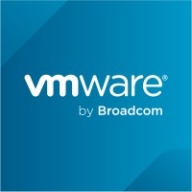


Red Hat Ansible Automation Platform and Spring Cloud compete in IT automation and cloud architecture. Spring Cloud generally has the upper hand with feature richness and cloud-native integration.
Features: Red Hat Ansible Automation Platform focuses on simple automation orchestration, efficient playbook execution, and broad compatibility. Spring Cloud offers microservices architecture capabilities, comprehensive infrastructure management, and seamless integration with cloud services.
Ease of Deployment and Customer Service: Red Hat Ansible Automation Platform offers an accessible deployment process and robust customer support, which appeals to companies seeking quick onboarding and reliable assistance. Spring Cloud specializes in cloud-native deployment, offering more extensive support for developers familiar with cloud systems.
Pricing and ROI: Red Hat Ansible Automation Platform's pricing ensures competitive setup costs, providing good ROI due to efficiency in automation tasks. Spring Cloud, potentially more expensive, justifies its pricing with robust capabilities and extended cloud support, promising long-term advantages for strategic cloud deployments.
| Product | Market Share (%) |
|---|---|
| Red Hat Ansible Automation Platform | 13.5% |
| Microsoft Intune | 8.2% |
| Spring Cloud | 1.7% |
| Other | 76.6% |



| Company Size | Count |
|---|---|
| Small Business | 117 |
| Midsize Enterprise | 46 |
| Large Enterprise | 152 |
| Company Size | Count |
|---|---|
| Small Business | 24 |
| Midsize Enterprise | 8 |
| Large Enterprise | 48 |
Microsoft Intune provides centralized management of mobile devices and applications, ensuring security, compliance, and productivity through integration with Microsoft services like Microsoft 365 and Azure Active Directory.
Organizations use Intune for managing mobile devices and applications, enhancing security and compliance across platforms. With features like single sign-on, conditional access, and zero-touch deployment via Autopilot, it facilitates efficient operations. Intune's scalability, easy enrollment, and capabilities such as remote wipe support diverse device management, offering robust data protection and efficient operation. Despite its features, improvement areas include reporting, compatibility with non-Microsoft devices, and better support for macOS and Linux devices.
What are the key features of Microsoft Intune?
What benefits should users look for in reviews?
In industries such as finance, healthcare, and education, Microsoft Intune is implemented to ensure secure and compliant device management. Companies leverage its capabilities to deploy security policies and manage both corporate-owned and BYOD environments, facilitating a unified approach to data protection and compliance.
Red Hat Ansible Automation Platform streamlines IT operations with features like a simplified GUI and extensive module support. Its agentless architecture and YAML ease make it an adaptable choice for managing diverse infrastructures efficiently.
Red Hat Ansible Automation Platform offers a robust automation framework that supports multiple environments and integrates well with various applications. Its agentless Python-based architecture facilitates efficient server management and rapid update deployment. Users benefit from centralized management through Ansible Tower, role-based access control, and dynamic inventory. However, improvement areas include documentation, API integration, network support, and UI scaling. Enhanced community contributions could address module availability and compatibility gaps.
What are the most important features of Red Hat Ansible Automation Platform?In industries like finance, healthcare, and technology, Red Hat Ansible Automation Platform is used for network management, security compliance, and configuration tasks. Organizations utilize its capabilities for cloud and on-premises deployment, infrastructure provisioning, and workflow orchestration. Many integrate it with tools such as Puppet or Terraform to enhance CI/CD processes, benefiting from its agentless design in adapting to cloud environments.
Spring Cloud simplifies distributed, microservice-style architecture by implementing proven patterns to bring resilience, reliability, and coordination to your microservices. Using Spring Cloud Services, Pivotal Cloud Foundry customers have a turnkey, secure solution for production operations of this coordination infrastructure - service registry, config server, and circuit breaker dashboard.
We monitor all Configuration Management reviews to prevent fraudulent reviews and keep review quality high. We do not post reviews by company employees or direct competitors. We validate each review for authenticity via cross-reference with LinkedIn, and personal follow-up with the reviewer when necessary.